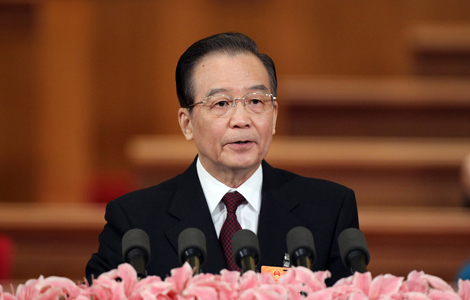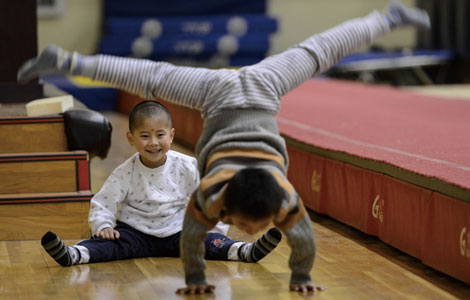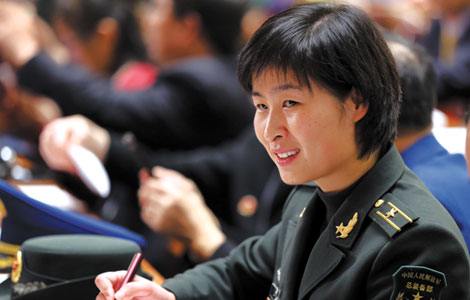Obama proposal targets talent to boost economy
Updated: 2013-01-31 07:29
By Qin Zhongwei in Beijing, Chen Weihua in Washington, and Liu Yuhan in New York (China Daily)
|
||||||||
Chinese people working or going to college in the US 'set to benefit'
High-skilled Chinese workers and students in the United States may benefit from a proposal by US President Barack Obama to overhaul the immigration system, observers said.
Obama said that the time has come to promote comprehensive reform to change the "out-of-date" immigration system.
Speaking on Tuesday in Las Vegas, where 27 percent of the population is Hispanic, Obama said that if Congress declines to act he will send his own proposal to Capitol Hill. He made his proposal a day after a bipartisan group of senators outlined their reform framework.
The proposals by Obama and the senators emphasize a path to legal residency and citizenship for undocumented immigrants living in the US.
So far, much of the talk on immigration reform has focused on Hispanics, who make up the majority of the 11 million undocumented immigrants.
However, Asian immigrants, both legal and illegal, will also benefit if the reforms are passed, according to observers. Raymond Wong, a lawyer in Manhattan, said "the signs are hopeful for the Chinese community".
Under the proposals, undocumented immigrants who have been in the country for eight years can become legal residents and citizens five years later, once they pass background checks.
Those who apply for permanent residency would do so from the back of the line, behind other applicants, and not gain any advantage over those who followed normal procedure when submitting papers.
According to a Department of Homeland Security report last year, there were an estimated 280,000 unauthorized Chinese immigrants in the US in January 2011, an increase of 90,000 over 2000.
The US allocates a 20,000 immigration quota to Chinese citizens each year.
Obama's proposals also include granting a green card to students who have been given work after getting graduate degrees in science, technology, engineering and mathematics.
"For the skilled and educated, that means there are more visas," Wong said.
A Chinese consultant who has lived in the US for 10 years and has set up a website to help those seeking work or study opportunities said that the proposals could lead to more students going to the US. "But competition will be more intense to get into college as the numbers applying may be beyond the needs of the job market," he said.
There were 194,000 Chinese students studying in US universities and colleges in the 2011/2012 academic year, more than from any other country, according to the Institute of International Education. The proposals will not pose a talent threat to China as there are policies in place to bring overseas talent home, said Jin Canrong, professor at Renmin University of China.
"This is indeed great news for people like me," said Wincy Yun, a computer science student at City University of New York. "I believe lots of people have been waiting for the moment. I hope it will be written into law as soon as possible."
Weizhi Shao, a student in civil engineering at Columbia University, said he plans to return to China after graduation but his classmates and friends will be thrilled if this becomes a reality.
Major companies have called for policies to allow graduates to stay in the US.
Asians have overtaken Hispanics as the largest group arriving in the US.
Contact the writers at qinzhongwei@chinadaily.com.cn
Jin Hanghang contributed to this story.











